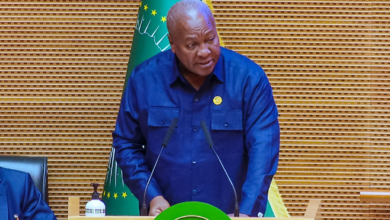The US-African Leaders Summit, scheduled for December 2022, will provide the Biden administration with an opportunity to demonstrate that the United States is ready to make concrete investments in its relations with African countries…
By Komlan Avoulete*
Read more : Tribune : how America Can Make the Most Out of its New Africa StrategyThe United States can mobilize tremendous resources for issues it cares about. This year, the Biden administration has given Ukraine more than US $54 billion in aid to resist Russia’s brutal invasion. These tremendous sums demonstrate America’s sincere commitment to Ukraine and its democracy.
America has long contended that Africa is important to US national security. But when it comes time for Washington to put its money where its mouth is, America often comes up short. The US-African Leaders Summit, scheduled for December 2022, will provide the Biden administration with an opportunity to demonstrate that the United States is ready to make concrete investments in its relations with African countries. Africans have attended many such summits hosted by the United States, France, and other countries. But with few exceptions, these summits have largely gone bust. Lofty rhetoric is rarely followed up with concrete action, and nothing changes.
If the summit—and America’s new sub-Saharan Africa strategy—are to be successful, the Biden administration will have to take full advantage of its expertise in technological innovation, cybersecurity, and health care to materially improve the lives of Africans. While US concerns about the rise of China and the activities of Russia in Africa are understandable, the focus of US policy on the continent must not be framed in terms of geopolitics, but on Africa’s development needs.
Real Change or More of the Same?
The US-Africa Leaders Summit appears set to break new ground. But unless it’s followed with concrete actions on the ground there’s a danger that it will be seen as just another meeting convoked by a great power that does nothing to address Africa’s needs.
Here are two things America can do to make sure the US-African Leaders Summit isn’t a bust. First, the United States should make sure that its embassies on the continent have the authority and resources (including staffing) to implement US policies. Second, Washington should renew the African Growth and Opportunity Act and expand its reach to increase access to US markets for African countries to aid their economic development.
The summit is an excellent opportunity for the US to apply its expertise in areas such as technological innovation, cybersecurity and security, and global health issues, along with its economic might, to address the continent’s compelling development needs. If the summit lays down new foundations in relations with the nations of Africa which is followed by concrete action, it could help the US counterbalance the influence of China and Russia on the continent.
The summit is a real opportunity for the US to show its sincerity and desire to support African countries in their efforts to develop. With its recent support for Ukraine, the United States has demonstrated that it can follow through with significant aid if it really wants to. A few months ago, Congress approved an additional US $40 billion in aid to Ukraine to support its efforts against Russia’s invasion. While this support is laudable, it would be a powerful message to the leaders and people of Africa if Congress would allocate significant funds to address the armed conflicts, food insecurity, infrastructure problems, and negative impacts of climate change on the continent, as well as working to waive Africa loans from the International Monetary Fund which impose a significant debt burden. US financial and technical aid focusing on infrastructure, promotion of democracy, energy, health, education, and agriculture are crucial for the continent, and rather than focusing on the potential for Chinese loans leading African countries into debt traps, a focus on alleviating the burden of International Monetary Fund (IMF) loans to African country would reinforce the stated commitment to partnership with Africa. The Trump administration told African countries not to expect its support for debt relief. On the one hand, sovereign nations must accept responsibility for the decisions they make, but it also must be kept in mind that like China, the IMF should have done due diligence before granting loans to countries, many of whom have in the past had to receive debt relief because of inability to repay loans.
The Race Will Be Won by the Wise
In November 2021, Secretary of State Antony Blinken affirmed that “Africa will shape the future” He added, “and not just the future of the African people but the world.” The new importance of Africa in US foreign policy is a necessity and crucial for the of humanity. Actions on the ground, though, must support this and overcome any sense that Africa is merely a pawn in a great-power game. African countries, naturally, will act in their best interests. When US interests align with them, the US will prevail. In the long term, extra-regional countries that demonstrate an understanding of Africa and provide concrete support to help them achieve their development goals will be the countries that will have the most influence.
The US should keep foremost in its mind that Africa is not just a source of strategic resources, nor is it simply a theater of global counter-terrorism efforts. It is the largest regional voting bloc in the United Nations and will be home to one-quarter of the world’s population by 2050. Africa does matter and will influence world affairs. Whether that influence will be positive or negative from a US perspective depends on whether in implementing its new strategy, the US matches actions with words.
Global Geopolitics and Africa
Chinese and Russian influence in Africa is rooted, in part, in the history of decolonization. Beijing and Moscow supported many African countries during their struggle for independence from European empires. The United States, on the other hand, largely supported European efforts on the continent, or, as in Angola, it aided the Africans who fought against those being supported by the Communist nations. As a result, many Africans are predisposed to viewing China and Russia as reliable partners.
The new U.S. Strategy Toward Sub-Saharan Africa is a good first step in improving America’s position on the continent. The United States should follow up on this document by fully staffing African embassies, moving to nominate and post ambassadors to African countries, and working with Africans to address development needs. Taking these steps would be the best way to improve ties with Africa while, at the same time, promoting US interests.
The US-Africa Leaders Summit is an excellent opportunity for the United States to convey to Africans concrete actions, such as how Washington will help economic develo pment through granting greater market access. It will also be a venue to signal that the United States considers African nations an equal and important partner by ensuring adequate staffing and resources for America’s embassies on the continent.
To win the hearts and minds of Africans, and not just their leaders, the United States should seek to develop a real win-win partnership with African countries founded on mutual respect, strong economic and security ties, and promotion of respect for human rights and rule of law. In this way, it will be able to protect its interests and gain more influence on the continent.
Ultimately, actions, not words, will determine if the upcoming US-Africa Summit and America’s most recent Africa strategy will reset relations with the continent.
*Komlan Avoulete holds a Master’s degree in Diplomacy and International Relations, specializing in International Security and Africa, from Seton Hall University. He is a freelance writer at International Policy Digest.
Source : Foreign International Research Institut.






